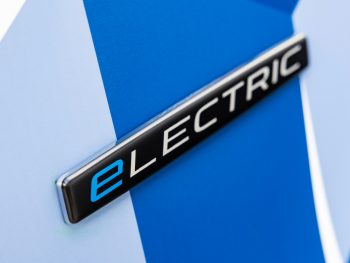The Government’s delay on the ban of new petrol and diesel cars/vans will “change little” for car fleets but probably acknowledges a reality for van operators, says the Association of Fleet Professionals (AFP).

The industry body said the overwhelming reaction from its members had been that last week’s extension to the sales of new ICE cars/vans was a nakedly political move that would have a limited impact on real-world fleet strategies – particularly for cars where fleets are already electrifying at a rapid pace.
But chair Paul Hollick said the picture could be different for vans – adding that many operators had already held strong doubts that the 2030 deadline could be met and the Government’s move to 2035 simply acted as an official acknowledgment.
Hollick elaborated: “It has become clear to many of our members over the last year or more that electrifying their light commercial vehicle fleets by the end of the decade was going to be a big ask. Neither the vehicle designs nor the charging infrastructure appear to be ready to meet the needs of all fleets, and there was a growing sense, at least among some, that this would have to be acknowledged sooner or later by the Government.”
However, he said that despite this, many AFP members would no doubt keep their plans for 2030 van electrification in place as part of their net zero strategies.
“We have operators who are deeply committed to this target or even sooner at a corporate level and none of them have so far indicated any change plus, of course, the zero emission vehicle mandate applies here, too. However, we expect that some businesses will now attempt to slow van electrification, with plug-in hybrids perhaps acting as a medium-term stepping stone.”
The AFP had previously pointed out that its members were reporting a range of issues with the introduction of electric vans. These include charging infrastructure that’s often unsuitable for vans, AER rates that do not provide suitable levels of reimbursement, ongoing poor supply of vehicles, limited choice of model types, rising lease and purchase prices and dramatically increased charging costs. The association has also said that real-world ranges are falling far short of official figures, while operational restrictions are creating challenges for fleets adopting new 4.25-tonne electric vans.
Van drivers have also been more resistant to electrification than their car counterparts, including due to typically being more reliant on public charging, which not only takes extra time and hassle but can also create problems over fair AER reimbursement.
Overall, Hollick stressed that fleets had been left feeling annoyed by the Prime Minister’s rowback on the 2030 date.
“Businesses have put in huge amounts of work on electrification and spent substantial sums. The fact that the deadline can then be moved in what appears to be a fairly arbitrary manner doesn’t endear the Government to fleets.
“Also, it should be acknowledged that many, many of our members take net zero very seriously at a corporate level and believe that we should be electrifying as quickly as possible, despite some of the obstacles that remain. There is a sense that the Government doesn’t necessarily share that priority.”

